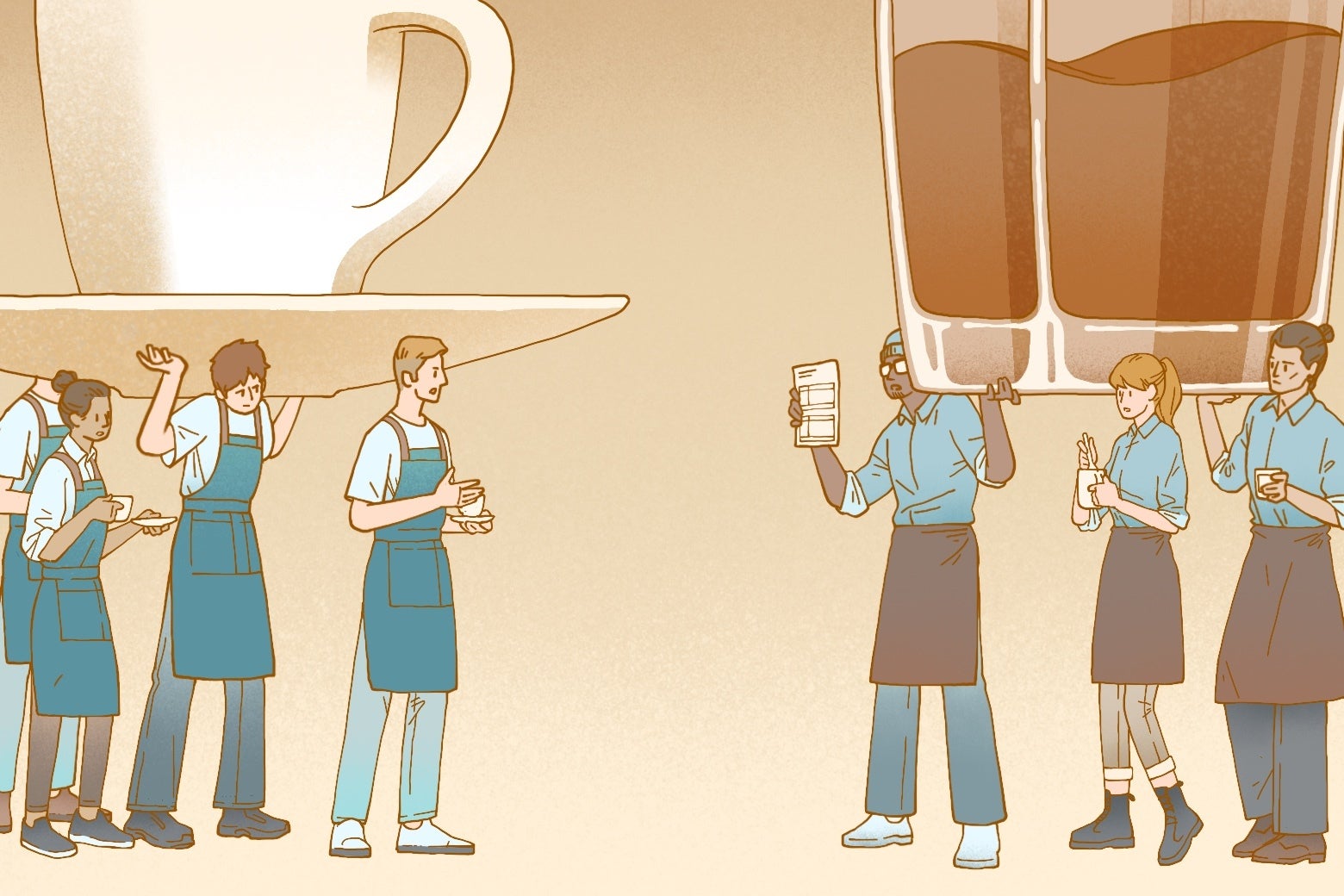
"At the pinnacle of coffee sensory evaluation is the cupping session. An affair replete with a professional accoutrement of scales, grinders, kettles, and timers, it involves experts brewing identical cups from different coffee beans and slurping (yes, loudly slurping) the brown brews off a spoon. Notes of star fruit on this washed Colombian. The taste of raisin from that dry-processed Kenyan."
"Literally, it's called "the Q." (No relation to Star Trek's mischievous superbeing-that we know of ...) Since 2004, the Coffee Quality Institute has licensed coffee specialists across the world to properly taste and describe coffee under the Quality Evaluation program. After taking a course, participants must pass a rigorous exam involving 20 different sensory, technical, and industry tests to become licensed Q graders."
"In addition to mastering book knowledge of the coffee supply chain, aspirational coffee experts must perfect the process of cupping by consistently brewing coffee from different beans while maintaining consistency of grind size, water temperature, water quantity, and brewing method. Grind the beans, then sniff. Brew the coffee, then slurp. Take notes along the way. The whole ordeal can cost around $2,000 (and keeping your license requires another class to calibr"
Coffee connoisseurship features a formal sensory ritual called cupping where experts brew identical cups and slurp to evaluate aroma and flavor. Cupping uses controlled equipment—scales, grinders, kettles, and timers—and emphasizes consistent grind size, water temperature, water volume, and method. The Coffee Quality Institute licenses Q Graders through a Quality Evaluation program established in 2004. Certification requires coursework and passing a rigorous exam covering sensory, technical, and industry knowledge across twenty tests. Maintaining and obtaining the credential involves additional calibration classes and substantial expense, with initial training costs around $2,000. Cupping notes include specific flavor descriptors like star fruit and raisin.
Read at Slate Magazine
Unable to calculate read time
Collection
[
|
...
]